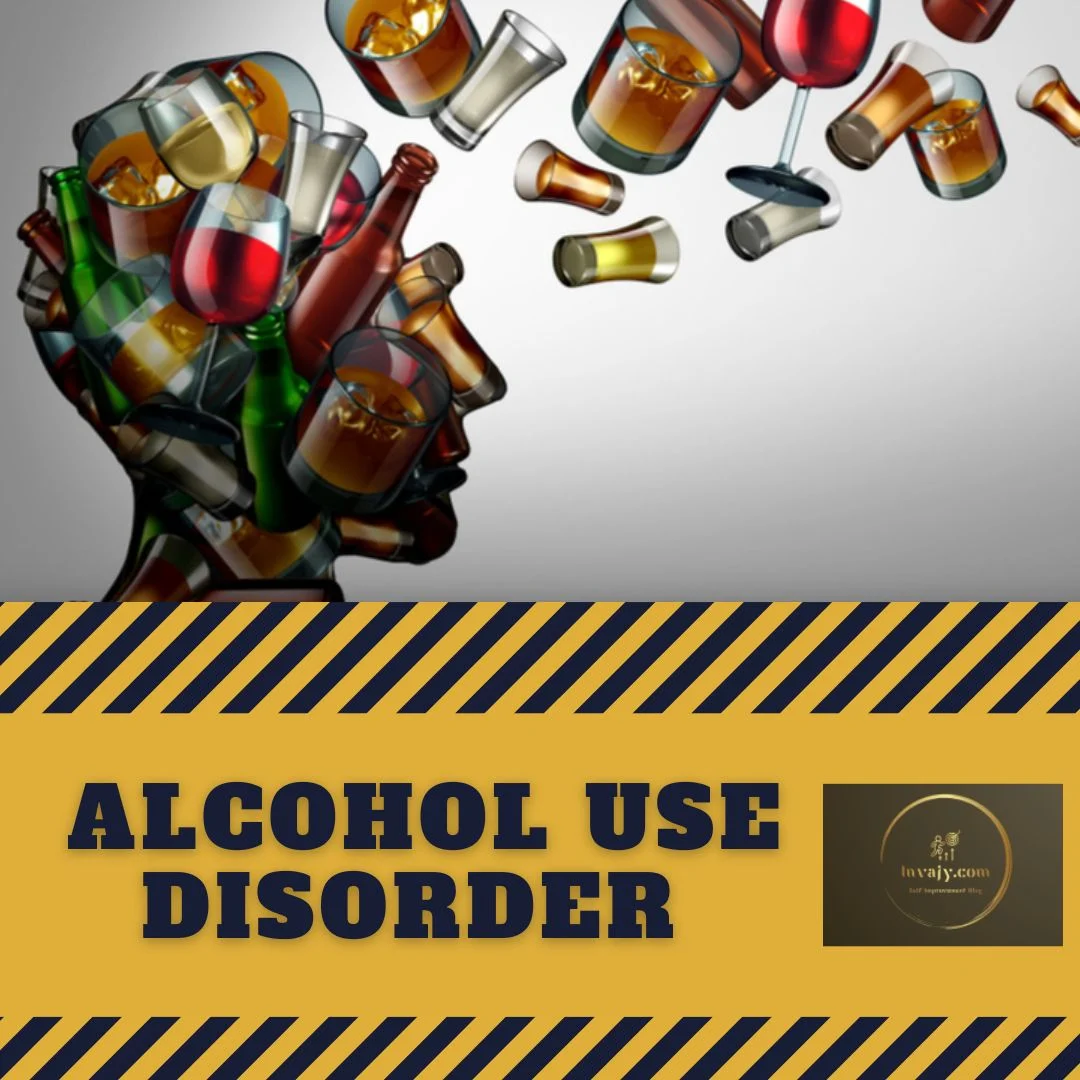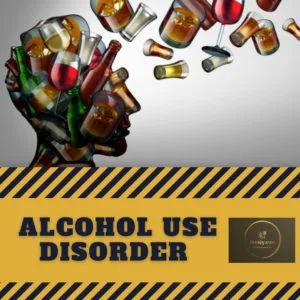Understanding, Recognizing, and Seeking Help for Alcohol Use Disorder (AUD)
Understand Alcohol Use Disorder with insights into its causes, effects, and treatment options. Explore strategies for managing and overcoming addiction to regain control of your life.

Alcohol is a widely consumed substance in many societies, often used in social settings or as a means of relaxation. However, for some individuals, the use of alcohol can become problematic and develop into Alcohol Use Disorder (AUD). AUD is a chronic condition characterized by the inability to control or stop drinking despite negative consequences. It is essential to understand the nature of AUD, recognize its signs and symptoms, and know how to seek help for this disorder.
What is Alcohol Use Disorder?
Alcohol Use Disorder (AUD) is a diagnosable mental health condition categorized by the Diagnostic and Statistical Manual of Mental Disorders (DSM-5). It encompasses a range of problematic drinking behaviors, from mild to severe, that can have detrimental effects on an individual’s physical and mental health, relationships, and overall well-being. This medical condition is characterized by an impaired ability to stop or control alcohol use despite adverse social, occupational, or health consequences. AUD encompasses the conditions that some people refer to as alcohol abuse, alcohol dependence, alcohol addiction, and the colloquial term, alcoholism.
It also includes binge drinking — a pattern of drinking where a male has five or more drinks within two hours or a female has at least four drinks within two hours. Binge drinking causes significant health and safety risks.

Signs and Symptoms of Alcohol Use Disorder
Alcohol use disorder can be mild, moderate or severe, based on the number of symptoms you experience. Signs and symptoms of AUD may include:
Loss of Control
Individuals with AUD often struggle to limit their alcohol intake, experiencing a lack of control over how much they drink or their inability to stop drinking once they start. Such people want to cut down on how much they drink but such attempts become unsuccessful.
Cravings
Frequent and intense cravings for alcohol are a common symptom of AUD. These cravings can be both physical and psychological, driving individuals to prioritize drinking above other activities or responsibilities.
Tolerance
Over time, people with AUD may develop a tolerance to alcohol, requiring larger amounts to achieve the desired effects. Increased tolerance can contribute to escalated alcohol consumption.
Withdrawal Symptoms
When individuals with AUD attempt to stop or reduce their alcohol intake, they may experience withdrawal symptoms such as tremors, anxiety, irritability, nausea, or sweating. These symptoms can be severe and often lead to continued drinking to avoid discomfort.
Neglected Responsibilities
People with AUD may neglect their work, school, or family responsibilities due to their preoccupation with drinking. Their dedication to obtaining and consuming alcohol takes precedence over other important aspects of life.
Continued Use Despite Negative Consequences
Despite experiencing adverse consequences such as relationship problems, legal issues, declining physical health, or financial difficulties, individuals with AUD persist in their alcohol use.
Use in Unsafe Situations
Using alcohol in situations where it’s not safe, such as when driving, swimming, or boating. It also included using machinery at work place or any other activities that require attention, skill, or coordination.
Risks Associated with AUD
Alcohol Use Disorder (AUD) poses various risks to both physical and mental health. The long-term effects and risks associated with AUD can be significant and may include:
Physical Health Consequences
- Liver Damage: Excessive and prolonged alcohol consumption can lead to liver diseases such as alcoholic hepatitis, cirrhosis, and liver failure.
- Cardiovascular Problems: Heavy drinking can contribute to high blood pressure, irregular heart rhythms, and an increased risk of heart disease and stroke.
- Increased Cancer Risk: Alcohol consumption is linked to an increased risk of developing various types of cancers, including mouth, throat, liver, breast, and colorectal cancers.
- Weakened Immune System: Alcohol can weaken the immune system, making individuals more susceptible to infections and diseases.
- Nutritional Deficiencies: Alcohol interferes with the body’s ability to absorb and utilize essential nutrients, leading to deficiencies in vitamins and minerals.
Mental Health Issues
- Depression and Anxiety: AUD is often associated with an increased risk of depression and anxiety disorders.
- Increased Risk of Suicide: Individuals with AUD are at a higher risk of suicidal thoughts and behaviors.
- Cognitive Impairment: Long-term alcohol abuse can lead to memory problems, cognitive deficits, and an increased risk of developing alcohol-related dementia.
Social and Interpersonal Consequences
- Relationship Problems: AUD can strain relationships with family, friends, and romantic partners, leading to conflict, loss of trust, and emotional distress.
- Legal Issues: Alcohol-related behaviors, such as driving under the influence or engaging in violent behavior, can result in legal problems, including arrests, fines, or imprisonment.
- Occupational Difficulties: AUD can affect job performance, leading to absenteeism, poor productivity, and potential job loss.
Increased Risk of Accidents and Injuries
- Accidents: Alcohol impairs coordination, judgment, and reaction time, increasing the risk of accidents, falls, and injuries.
- Violence: Alcohol use is often associated with an increased risk of involvement in physical altercations and acts of violence.
Financial and Economic Consequences
- Financial Strain: The cost of alcohol and related expenses can place a significant financial burden on individuals with AUD and their families.
- Employment Issues: Occupational difficulties resulting from AUD can lead to decreased income, unemployment, and financial instability.
Seeking Help for Alcohol Use Disorder
Recognizing the presence of Alcohol Use Disorder is the first step toward seeking help and initiating the path to recovery. Here are some avenues to consider:
Consult a Healthcare Professional
Start by consulting a healthcare professional, such as a primary care physician or mental health specialist. They can assess the severity of your condition, provide a proper diagnosis, and guide you toward suitable treatment options.
Therapy and Counseling
Engaging in therapy or counseling, such as Cognitive Behavioral Therapy (CBT), can help individuals with AUD develop coping strategies, identify triggers, and address underlying emotional issues that may contribute to their drinking patterns.

Medication
In certain cases, healthcare professionals may prescribe medications to assist in the management of Alcohol Use Disorder. Medications can help reduce cravings, minimize withdrawal symptoms, or deter the desire to drink.
Support Groups
Joining mutual-support groups can provide invaluable peer support, guidance, and accountability. These groups offer a safe space to share experiences, learn from others, and receive encouragement on the journey to recovery.
Group meetings are available in most communities at low or no cost, and at convenient times and locations—including an increasing presence online. This means they can be especially helpful to individuals at risk for relapse to drinking. Combined with medications and behavioral treatment provided by health care professionals, mutual-support groups can offer a valuable added layer of support.
Lifestyle Changes
Adopting a healthier lifestyle is crucial for individuals with AUD. This may involve making positive changes such as engaging in regular exercise, practicing stress-management techniques, cultivating a supportive social network, and developing new hobbies and interests that do not revolve around alcohol.
Establishing a Supportive Environment
Surrounding oneself with understanding and supportive individuals can greatly aid in the recovery process. Communicate your needs to friends and family, and ask for their support in creating an environment that promotes sobriety and wellness.
Over to You
Remember, recovery from Alcohol Use Disorder is a personal journey, and the path may vary for each individual. It is important to be patient, kind to oneself, and to celebrate small victories along the way. Professional help and healthy lifestyle changes can go a long way towards helping you to overcome AUD and lead a healthier, fulfilling, and alcohol-free life. I hope, if you will use above tips and strategies do deal with Alcohol Use Disorder; you will surely be able to manage this mental health condition in a better way.
That’s all from my side. I hope, you liked this article on mental health. Please share this on your favorite social media portals with your friends and relatives.
(Disclaimer: This article is for general information only. Before adopting preventive methods/measures/treatment, please seek medical advice)






